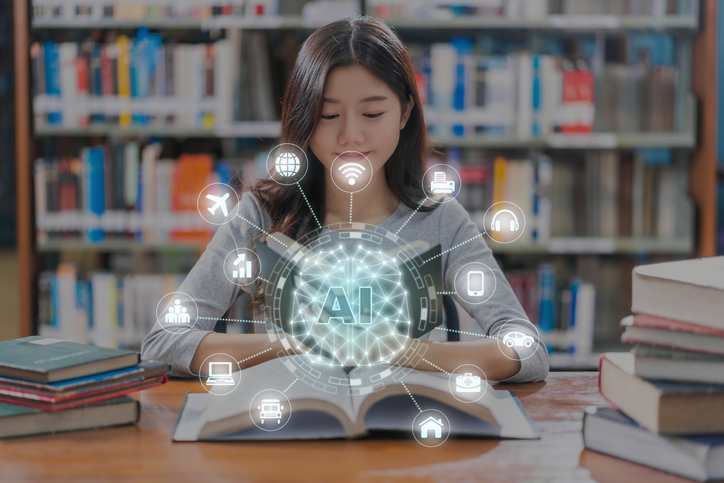Artificial Intelligence (AI) has been transforming various industries, and the education sector is no exception. In recent years, AI has been making waves in education, from personalized learning to smart content and beyond. It has the potential to revolutionize the way students learn, teachers teach, and schools operate.
See Also: Future of Retail: Trends and Innovations to Watch
One of the most significant benefits of AI in education is personal learning. With the help of AI, educators can now cater to the individual needs of each student. AI algorithms can analyze the student’s learning styles, strengths, and weaknesses, and adapt to their needs accordingly. For example, if a student is struggling with a particular concept, AI-powered software can provide additional resources. This could help them understand the concept better. This personalized learning approach can help students learn at their own pace. In a way that suits them best, ultimately leading to better academic outcomes.
Another significant application of AI in education is in the field of smart content. Smart content refers to educational materials that are customized to suit the needs of individual students. With the help of AI, educators can now create smart content that adapts to the learning styles and preferences of each student. For example, AI-powered textbooks can present content in a way that is most conducive to a student’s learning style. If a student is a visual learner, the textbook can include more diagrams and images to help them understand the material better. This personalized approach can make learning more engaging and effective.
AI can also help educators make data-driven decisions. With the vast amounts of data generated by educational institutions, it can be challenging to make sense of it all. AI-powered analytics can help educators analyze this data and gain insights into the performance of students, teachers, and schools. For example, AI-powered software can track the progress of students and identify areas where they may be struggling. This data can help educators develop targeted interventions to help students improve their academic outcomes.
In addition to personalized learning and smart content, AI can also enhance the role of teachers in the classroom. With AI-powered tools, teachers can now automate routine tasks such as grading and administrative tasks, allowing them to focus on more important tasks such as lesson planning and providing one-on-one support to students. AI can also help teachers identify areas where students may be struggling and provide targeted interventions to help them overcome these challenges.
However, it is important to note that AI in education is not without its challenges. One of the most significant concerns surrounding AI in education is the potential for bias. AI algorithms are only as unbiased as the data they are trained on, and if the data used to train AI algorithms is biased, the algorithms themselves will be biased. This could potentially lead to inequalities in education and reinforce existing social and economic divides.
Another concern is the potential for AI to replace human teachers. While AI can certainly enhance the role of teachers in the classroom, it cannot replace the human connection that is so crucial to learning. Students need human interaction and support to thrive, and while AI can provide some level of support, it cannot replace the relationships that are built between students and teachers.
In conclusion, AI has the potential to revolutionize the education sector, from personalized learning to smart content and beyond. While there are certainly challenges to overcome, the benefits of AI in education are too great to ignore. By leveraging the power of AI, educators can provide a more personalized, engaging, and effective learning experience for students, ultimately leading to better academic outcomes and a more equitable education system.



















